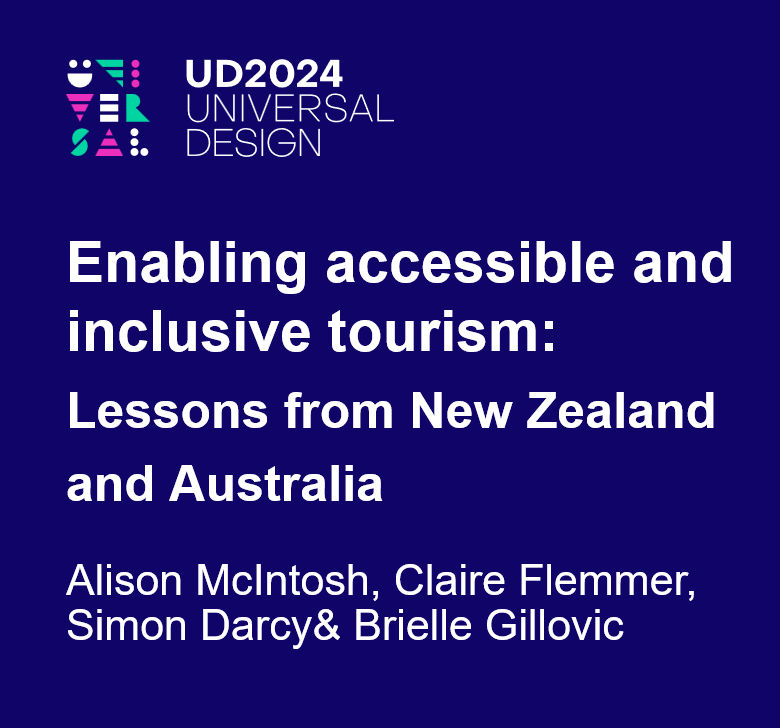Tourism For All NZ Research Group
Permanent link for this collection
Professor Alison McIntosh, Dr Brielle Gillovic, AUT Adjunct Professor Simon Darcy (University of Technology Sydney) and AUT Visiting Scholar, Dr Cheryl Cockburn-Wootten (University of Waikato) coordinate the Tourism for All NZ Research Group.
Initially funded by the New Zealand Ministry of Social Development Think Differently Fund, NZ Tourism For All is a project to champion accessible tourism in New Zealand. The investigation recognises the citizenship rights of people with disabilities and those living with chronic or terminal illness to tourism as an inclusive leisure activity. Current projects include accessible beach tourism; accessible hotel restaurants; tourism and carers; disability employment and entrepreneurship; terminal illness and travel; and disability, tourism and sustainability.
Further related resources:
- Tourism Evidence and Insights Centre
- Gillovic, B. (2019). Experiences of Care at the Nexus of Intellectual Disability and Leisure Travel [Unpublished PhD thesis]. The University of Waikato.
- Gillovic, B., McIntosh, A., Darcy, S., Cockburn-Wootten, C. (2018). Enabling the Language of Accessible Tourism, Journal of Sustainable Tourism, Vol. 26 (4), pp. 615-630.
News
Featured
Key Facts and Figures about Accessible Tourism
Tourism For All New Zealand have collected useful, evidence-based facts about accessible tourism in New Zealand. Read them here, and keep up to date with our industry-relevant research.
Did you know that 83% of people with access requirements regularly engage in domestic travel?
Key Facts and Figures Read our Industry-relevant research
